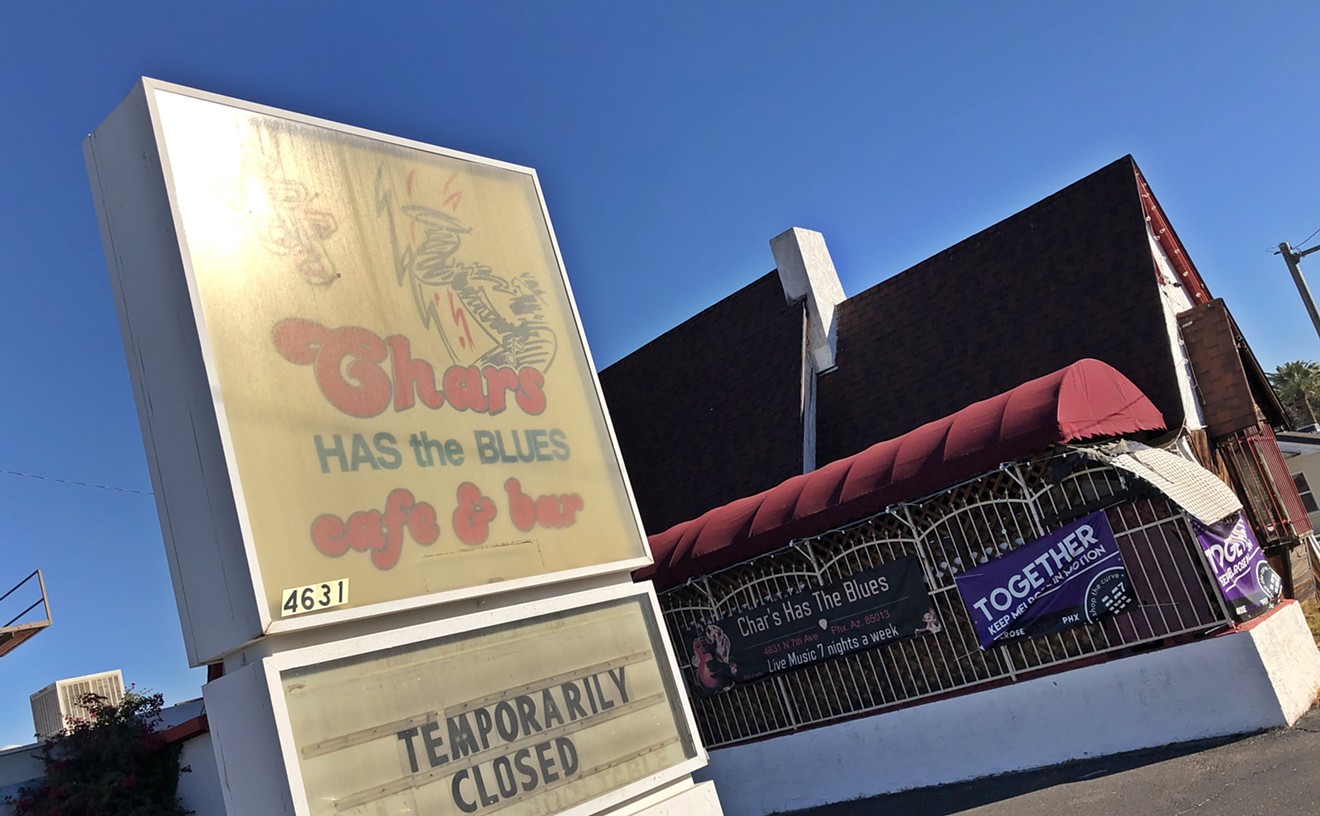Fleetwood Mac's drummer was checking out the studio of engineer Keith Olsen when he heard a track from an obscure California duo named Buckingham Nicks. Looking for someone to replace departed guitarist Bob Welch, he sought out the nimble-fingered Lindsey Buckingham. Perhaps it was loyalty to his then-girlfriend Stevie Nicks that made Buckingham tell Fleetwood that the duo was a package deal. But more than two decades later, it looks like an impressive case of career savvy.
Over the years, Buckingham and Nicks have become the Richard Burton and Elizabeth Taylor of rock, setting off sparks whenever they're in the same room, no matter how many years have passed since their romantic and musical harmony went off-key.
Often denounced as everything punk tried to destroy, Fleetwood Mac, in its '70s heyday, was a first-rate pop-rock band. If young rockers sheepishly cite the band as a guilty pleasure, the guilt has little to do with the music, and almost everything to do with the Mac lifestyle: spoiled, decadent, excessive, rock-star indulgence that went out with the Carter administration. And a major part of that lifestyle was the ongoing public soap opera of Buckingham and Nicks.
This year, as Fleetwood Mac fans simultaneously recognize the 20th anniversary of the culture-quake album Rumours and see the band re-form for the millionth time, it's more obvious than ever how much the Buckingham-Nicks axis has dominated the Mac since they joined the journeyman blues-rockers in 1975.
While Rumours is remembered as a musical journal of couples breaking up (even Mick Fleetwood was separated from his wife at the time), it's unlikely that much sleep was lost in middle America over Christine and John McVie's marital woes. To this day, their relationship is only rarely--and briefly--discussed, with the implication being that John drank himself out of her good graces. But Christine's tunes on Rumours were basically the same well-crafted, helpless love songs that she's always written, about needing sugar daddies to make loving fun, and that sort of thing. If her life was newly stressful at the time of Rumours, you really had to squint between the lines to find any evidence.
But Buckingham and Nicks were a different story. Songs like "Go Your Own Way" and "The Chain" (credited to the band, but largely written by Nicks) positively dripped blood. In a way, the couple's breakup actually created an identity for Buckingham. Though he had some good moments on the 1975 Fleetwood Mac album ("Monday Morning," his vocal on "Blue Letter"), he didn't really emerge from his guitar-wonk shell until the venomous "Go Your Own Way" hit radio in early 1977. Driven by an insistent yet disorienting beat, and Buckingham's most furious vocal and guitar work, "Go Your Own Way" painted Buckingham as a victim of Nicks' restless bed-hopping. It also opened wounds that have yet to close.
In a 1979 Rolling Stone cover story, Nicks argued that Buckingham's "packing up, shacking up's all you want to do" line was way off the mark, suggesting their real problem was that Buckingham would rather sleep with his guitar than her. Eighteen years later, in the latest issue of Rolling Stone, she continues to carp about the song, saying, "Every time those words would come out onstage, I wanted to go over and kill him."
It's often been said that Ginger Rogers made Fred Astaire more attractive by nuzzling cheek-to-cheek with him. In some perverse way, Stevie Nicks made Lindsey Buckingham seem more attractive by breaking up with him. From then on, he was the rebel of the band, the malcontented weirdo artiste who wanted no part of Nicks' crystal visions.
It was with Rumours' double-album follow-up Tusk that Buckingham not only cemented his pop mastery, but raged against the band's spoiled-L.A.-rock-star image. Released within weeks of the Eagles' The Long Run, it offered conclusive proof that these two California bands were distinctly different animals. Recording much of the album at home with tissue boxes in place of drums, Buckingham took the anything-goes spirit of punk and New Wave and filtered it through his Beach Boys-informed, formal pop background. Even his new look--clean-shaven with close-cropped coif and stylish suits--pushed him out of step with the sandaled feet of Glenn Frey and Don Henley.
Tusk is to Rumours what the White Album is to Sgt. Pepper: a sprawling, fragmented response to a popular smash that inevitably met with mild disappointment at the time. Like the White Album, however, Tusk's impact has grown over the years, and it's frequently cited by young pop bands as a touchstone. Matthew Sweet loved the album so much he even hired Tusk co-producer Richard Dashut for his 1993 album Altered Beast.
Like the White Album, Tusk forced people to take sides in the band's creative tug of war. Nicks, who had shown much promise on Rumours with the spooky "Gold Dust Woman" and the folk-pop lilt of "I Don't Want to Know," lost her bearings and descended into a gothic fog with such tripe as "Sisters of the Moon." Christine McVie's solid romantic warmth started to turn to blandness. But Buckingham, with the psycho-candy of "Not That Funny" and the ethereal desperation of "Walk a Thin Line," unhinged the whole operation.
After Tusk, the band recorded a live album, two more studio albums, and even made a pretense of continuing after Buckingham's angry walkout of 1987. But the Fleetwood Mac that reconvened for Mirage in 1982 was no longer a band. By this point, Nicks and Buckingham had released successful solo albums, and Mac was something they squeezed in between individual commitments. Part of Tusk's urgency centered on the fact that three songwriters were all battling to share the same creative outlet. By Mirage, Buckingham's creative coup d'etat had been squelched, and he sounded like the demoted factory worker he had become.
So if Fleetwood Mac was closer to a corporate brand name than a band in '82, what hope is there for the reunited Mac in '97? Inevitably, the band's new album and 43-city tour look like cynical, greedy attempts to prove that if the Eagles can go ice-skating in hades, so can the Mac. Nicks argues against that theory, telling Rolling Stone's Fred Schruers, "Lindsey made a whole lot more money than everybody else did because he produces . . . so he didn't have to do this for money, you know."
Despite a ridiculous number of broadcasts on MTV and VH1 (couldn't diehards just tape it?), Mac's new live album, The Dance, has been an astounding commercial success. It debuted on the Billboard charts at No. 1, and was still clinging to a No. 6 position almost two months after its release. Of course, the album offers few surprises. The group gives "Say You Love Me" a mild countrified touch, and Buckingham wrings amazing intensity out of his solo version of "Big Love." But everything else sounds more or less as you remember it--even the four new songs are easily mistaken for old Mac outtakes.
But it's with "Silver Springs," a 20-year-old Nicks track held off Rumours and relegated to B-side status, that you remember why Fleetwood Mac will always move people in a way that the Eagles never could. When the re-formed Eagles did "Hotel California" or "One of These Nights," all you got was a regurgitation of a tired classic-rock war-horse. Nostalgia at its worst.
With Fleetwood Mac, you get the nostalgia, but there's something else at work, too. A song like "Silver Springs," with Nicks staring down Buckingham as she sings "You'll never get away from the sound of the woman that loves you," takes on added meaning as these former lovers approach 50. And "Landslide," Nicks' youthful confrontation with mortality, is no longer just the abstraction it was when she wrote it. Because these songs genuinely decode the Buckingham-Nicks relationship, as that relationship takes new twists and turns, the songs do the same.
Whether they like it or not, neither Buckingham nor Nicks seems artistically complete without the other. Without Buckingham as producer/arranger, Nicks is a dime-store mystic ill-equipped to put musical flesh on her song skeletons. Without Nicks as a hippy-dippy counterbalance, Buckingham doesn't seem quite as quirky or rebellious. If anything has changed in the past decade, it's that they both finally seem to have come to a realization: No matter where they go or what they do, they're trapped in this soap opera for life.
Fleetwood Mac is scheduled to perform on Wednesday, October 22, at Desert Sky Pavilion. Showtime is 8 p.m.









